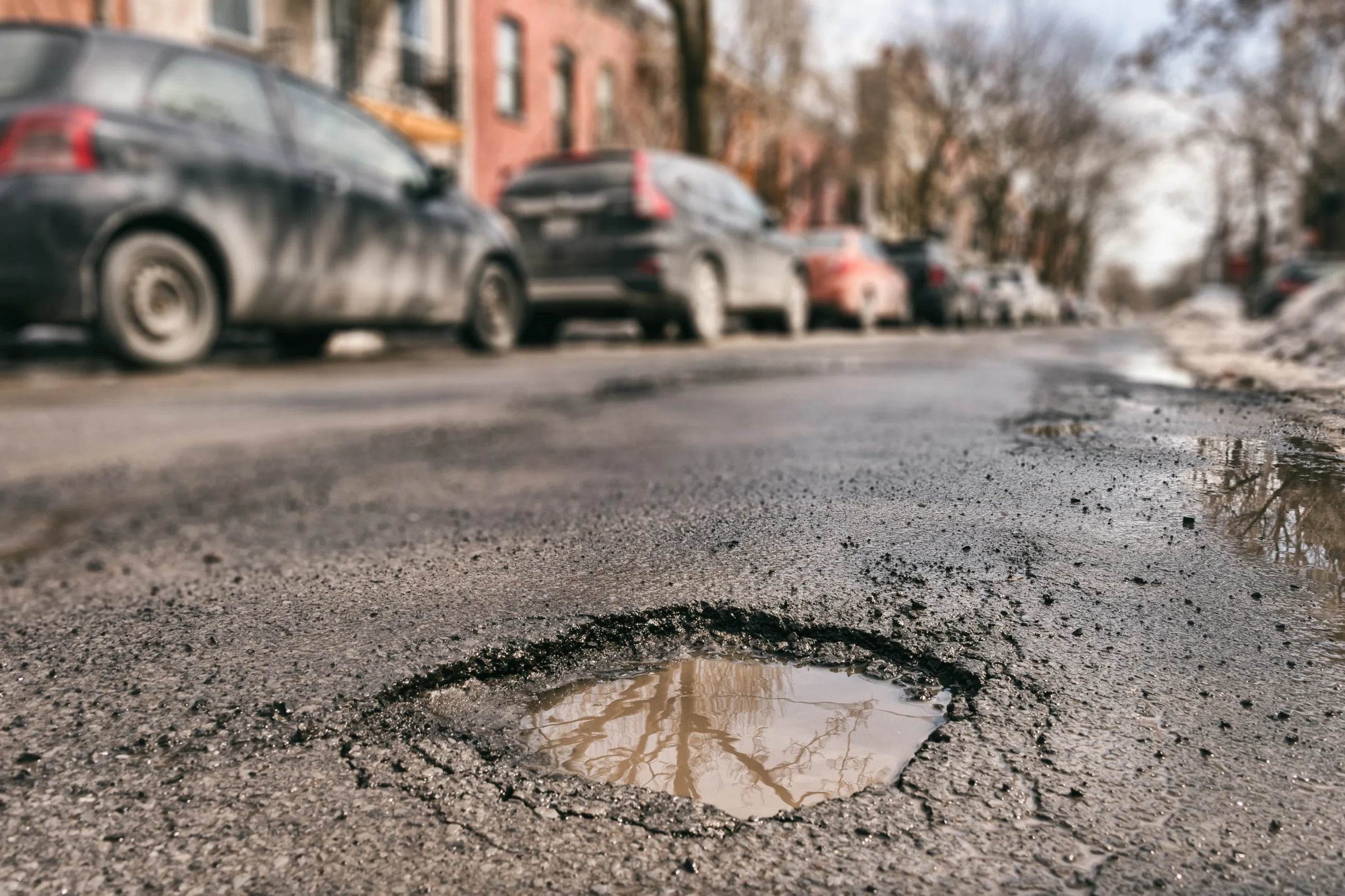From the Legal world and subject matter experts on cycling related claims; our first article in this new series is brought to you by The Biking Lawyer in Toronto, ON.
The cycling community is disproportionately impacted by road disrepair. While a motor vehicle sits on top of four giant tires, a cyclist balances atop two narrow points of contact. Poorly maintained road surfaces are a hazard to us at a level that your average motorist could never comprehend.
Every day the team at The Biking Lawyer LLP are contacted by cyclists who have crashed as a direct result of potholes and other road hazards. Unlike most law firms, our team recognizes that we have a duty to the cycling community, so we find ourselves representing countless victims of road disrepair. In fact, road disrepair claims are our second most common type of case – the first being claims against negligent drivers.
The truth is that road disrepair cases are amongst the most difficult claims to win. The greatest barrier to winning these cases is known as the “reasonable knowledge test”. The “Reasonable Knowledge Test is found at Section 43(a) of the Municipal Act. The test is essentially the municipal law version of a “get out of jail free” card when it comes to road hazards.
The Municipal Act and its regulations (“Minimum Maintenance Standards for Municipal Highways Regulation”) provide a complex and detailed framework spelling out the standards required of municipalities when it comes to maintenance of their roads and sidewalks. The legislation states that a municipality is liable for all damages if they fail to meet road quality standards set by the legislation.
If that was where the Act ended lawyers would be jumping to prosecute the litany of bike crashes that stem from poorly maintained roads. Unfortunately, the Municipal Act goes on to rule out most of these cases by subsequently stating in section 43(a) that “if the municipality did not know and could not reasonably have been expected to have known about the state of repair of the highway or bridge” it is a complete defence to a claim. In other words, though a cyclist may have been injured by a clear and obvious road hazard – all that the municipality has to do to defend the claim is to provide the court with evidence that due to the magnitude of roadways within their jurisdiction they could not be reasonably be expected to have knowledge of the road hazard and therefore could not takes steps to remedy it in advance of the crash.
In case after case the reasonable knowledge defence has worked. The plaintiff goes to court and takes great pain to demonstrate clear images of a terrible road hazard. In response, the defendant admits that the road hazard is very real and that it may have in fact caused the bike crash, but in the next breath they raise section 43(a) of the Act and say there is no evidence to show that they had no foreknowledge of the hazard. Most of the time this defence is accepted and the bike crash claim is dismissed.
The solution to this travesty of justice is for cyclists to always remember that we are part of a community, and we must take every precaution available to us to look out for each other. If we want to make sure that municipalities repair their roads, we must routinely and diligently report road hazards. Once a hazard is properly reported it must be logged on the municipality’s database. The municipality then has an opportunity to take reasonable steps to remedy the hazard. If no steps are taken and the reported hazard subsequently results in the injury or death of a cyclist, the municipality’s section 43(a) “Reasonable Knowledge” defence will fail and they will be held liable.
The truth is that most bicycle crashes are preventable – especially when it comes to road hazards. We hate seeing cyclists injured by preventable hazards. When our phone stops ringing with cyclists telling us about terrible crashes that could have been avoided with proper road maintenance by the municipality, we will be satisfied that our work is done. Until then – keep your eyes open and report all dangerous road hazards. Doing so could help save a cyclist from a long road to recovery and a complicated lawsuit.



